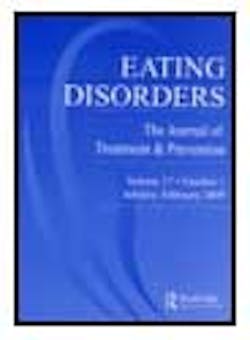A guide for dentists and other clinicians about the medical complications of self-induced vomiting
A new study in Eating Disorders: The Journal of Treatment & Prevention identifies the numerous medical problems associated with bulimia and provides comprehensive information on diagnosis and treatment for clinicians in various arms of medicine. Authored by Carrie A. Brown, MD, of University of Colorado-Denver and Philip S. Mehler, MD, chief medical officer of Denver Health, the article serves as a resource for medical professionals who may not specialize in the treatment of eating disorders — such as dentists, cardiologists, and ER staff — but who are often the first to encounter patients requiring care.RELATED |The Skinny on Eating Disorders As Dr. Brown explains, “The wide array of medical complications from bulimia may go unrecognized or remain untreated if the clinician caring for the patient lacks expertise or knowledge about this disorder. This article should serve as a comprehensive guide for clinicians to recognize, diagnose, and effectively treat the medical complications of self-induced vomiting.”RELATED |Prosthodontists can fix smiles damaged by eating disorders The article describes complications arising in multiple organ systems, with regard to skin, eye and nose, teeth and mouth, parotid gland, throat, gastrointestinal tract, amylase levels, renal electrolytes, and cardiovascular problems. Much of the bulimia-related mortality results from the complications that Drs. Brown and Mehler describe, yet various effective treatments exist. While many of these problems resolve once patients stop vomiting, additional treatment options are recommended for certain conditions. The authors also identify situations in which bulimia patients require specialized care to prevent further complications, for example, when presenting at the ER for dehydration.Medical Complications of Self-Induced Vomiting (Vol. 21, Issue 4, 2013) is currently available for free online access on the journal’s website. Click here to download a PDF or text version. For more information about the journal, and to view the latest table of contents, visit www.tandfonline.com/uedi. Eating Disorders: The Journal of Treatment & Prevention is a contemporary and wide-ranging journal that takes a fundamentally practical, humanistic, compassionate view of clients and their presenting problems. Edited by Leigh Cohn, MAT, CEDS, the journal provides a multidisciplinary perspective that considers the essential cultural, social, familial, and personal elements that not only foster eating-related problems, but also furnish clues that facilitate the most effective possible therapies and treatment approaches. Eating Disorders publishes high-quality, peer-reviewed research as well as clinical practice articles and special features.
